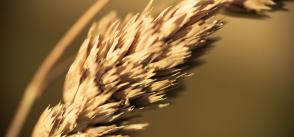
Of bread, bribes and fungus
WHEN Egypt, the world’s biggest importer of wheat, signalled last year that it would begin enforcing a ban on shipments of the grain with even trace amounts of ergot, a common fungus, it roiled the markets. Egypt, like most countries, had allowed grain with up to 0.05% ergot—a harmless level. The new standard would be nearly impossible to achieve, said suppliers, who proceeded to boycott the state’s grain tenders and raise prices. Within months, Egypt had to backtrack.
Yet on August 28th the government reimposed its zero-tolerance policy on ergot, no doubt hoping that doing the same thing again will produce a different result. This is after a UN study found that the fungus posed no risk to Egyptian crops. Instead, the government is relying on its own group of pseudo-scientists, who have disregarded decades of evidence to reach the opposite conclusion. All but one supplier boycotted a state tender on August 31st.
[Full article here | Photo by Kamil Porembiński]







